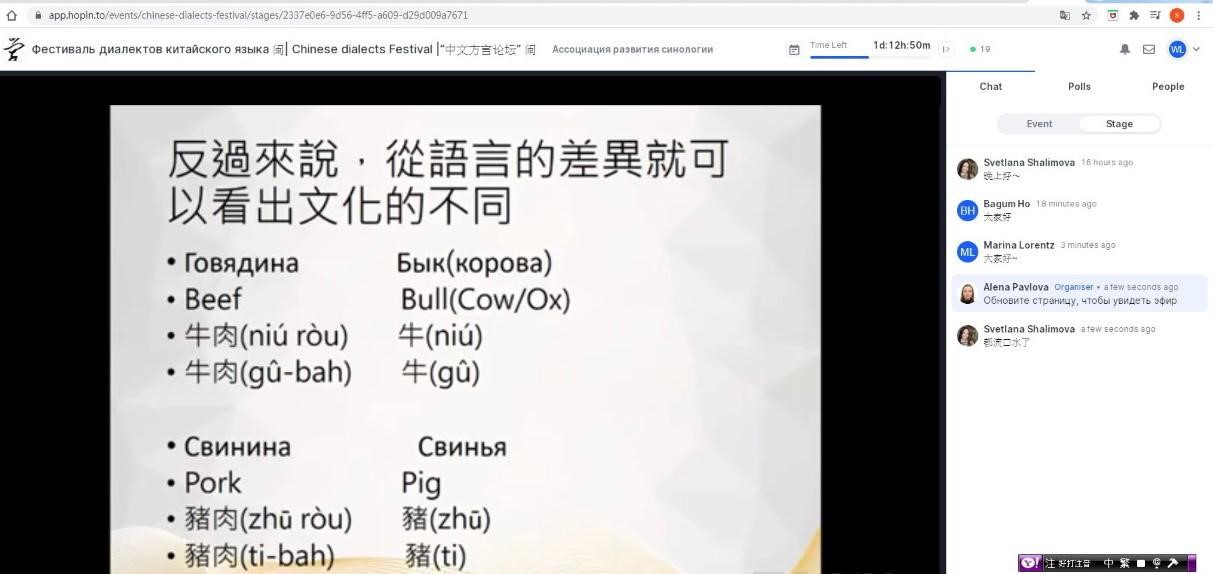Taiwanese Scholar Gives Online Lecture on Taiwan and Taiwanese Culture to the Association for the Advancement of Sinology in Russia

Dr. Ho Sin-Han, an associate professor in the Department of Taiwanese Languages and Literature at National Taichung University of Education, took part an online forum in mid-August for a Chinese Dialects Festival organized by the Association for the Advancement of Sinology in Russia. This was the first time that the Association has invited a Taiwanese scholar to take part in such an event.
The subject of Dr. Ho’s presentation was “Taiwanese and the Way Taiwanese People Look at the World” (臺語和臺灣人看世界的方式) and it consisted of two parts: 1. Different Cultures Generate Different Languages, and 2. Understand Taiwan’s History by Its Names. In the first part, he gave examples of how Russian, Mandarin Chinese, and Taiwanese languages deal with soup and tea: do people say that they “drink” or “eat” each of these? The differences reflect different cultures and mindsets.
In the second part, he introduced a brief part of the history of Taiwan: the period of its being a Dutch colony and the period of its being a Spanish colony. He mentioned the names of several daily items and animals which originated from different languages: green peas, soap, lighters, flies, and flying fish. He finished by drawing two conclusions: 1. that it’s impossible to understand a local culture without understanding the local language and only using the help of translators and interpreters translation; and 2. preservation of local languages is important because behind them lie deep cultural and historical meanings. An estimated 20 researchers and experts listened to his online lecture and provided feedback.
You can see a You Tube recording of Dr. Ho’s presentation here: https://www.youtube.com/watch?v=QYt1tVGCoaU
The Association for the Advancement of Sinology in Russia contacted the Education Division at the Taipei-Moscow Economic and Cultural Coordination Commission in November and expressed its hopes that scholars from Taiwan will participate and give presentations at future events.
The Russian Federal Government has included Mandarin Chinese as an option in the subject Foreign Language category of the Unified National Examination since 2019, and this has led to a sharp increase in the number of Mandarin Chinese learners in Russia in the past few years. There is also a growing number of people studying other Chinese dialects, including Taiwanese. The Education Division at the Taipei-Moscow Economic and Cultural Coordination Commission is continuing to promote Mandarin Chinese, Taiwanese, and Taiwan’s culture, and looks forward to more mutual understanding and interaction.